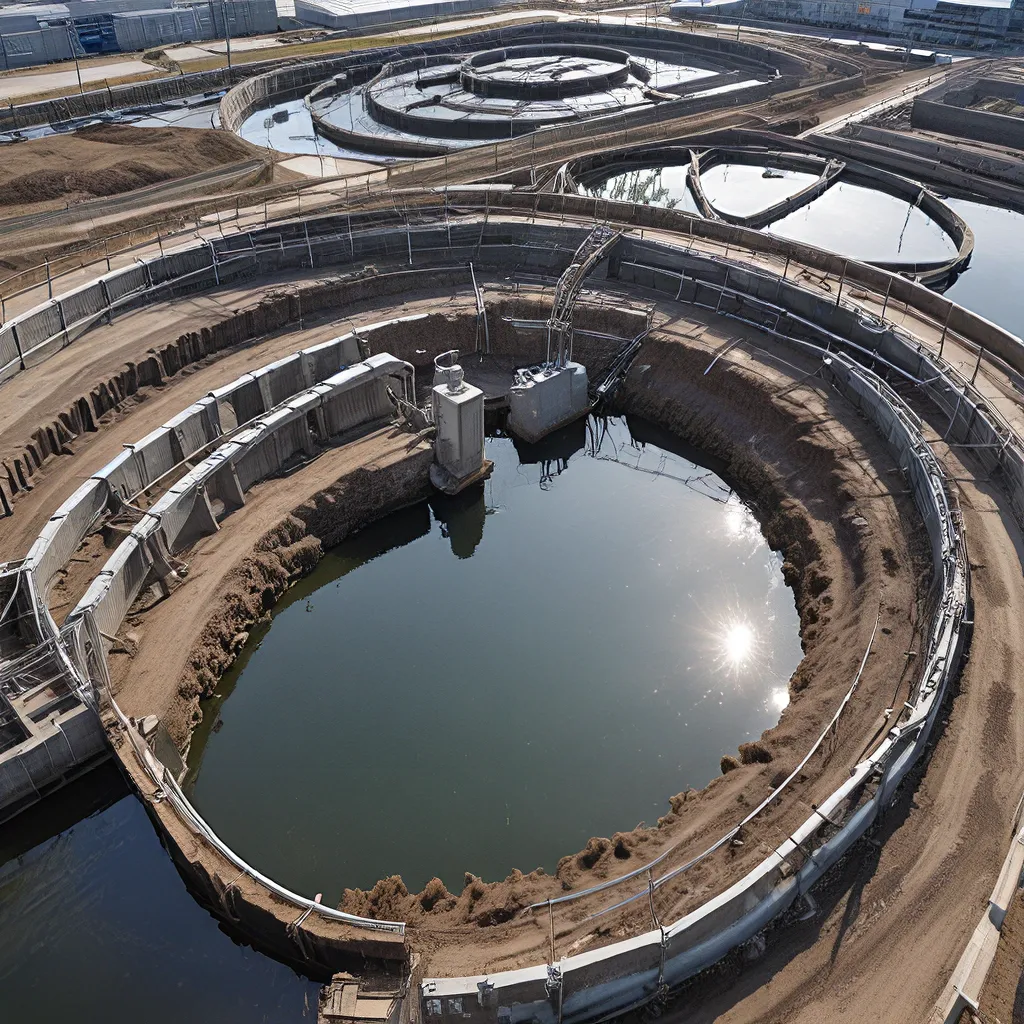
As a wastewater treatment enthusiast, I can’t help but get excited about the incredible potential that lies within the circular economy approach. It’s like we’ve discovered a hidden treasure trove, just waiting to be unearthed!
Imagine this: Instead of letting all that water and waste go to waste (pun intended), we can transform it into something truly remarkable. Think about it – food waste that would otherwise end up in landfills can be repurposed into compost, organic matter can be converted into biogas, and even the water itself can be recycled and reused. It’s a win-win-win situation for the environment, the economy, and our communities.
But this is more than just a pipe dream. Organizations like Ecozinha in Brazil and ENPRO in Togo are already leading the charge, proving that the circular economy isn’t just a lofty concept, but a practical and achievable reality.
Circular Economy: The Key to Sustainable Waste Management
At the heart of the circular economy lies the fundamental principle of eliminating waste and promoting the continual use of resources. This approach is a far cry from the traditional linear “take-make-waste” model that has dominated for far too long.
The Ellen MacArthur Foundation’s ReSOLVE framework provides a comprehensive blueprint for putting this into practice. Let’s break it down:
- Regenerate: Adopt renewable and reusable materials, and restore ecosystem health.
- Share: Maximize the utilization of assets through sharing, reuse, and maintenance.
- Optimize: Enhance product performance and efficiency, minimizing waste in production.
- Loop: Integrate remanufactured products and components, prioritizing recycling and extraction of biochemicals.
- Virtualize: Dematerialize goods and services, reducing the need for physical products.
- Exchange: Substitute old materials with new, innovative, and non-renewable ones.
Imagine if we applied these principles to wastewater treatment. Instead of just treating the water and disposing of the waste, we could transform that waste into valuable resources. Think compost, biogas, and even electricity – all while reducing our environmental footprint.
NGOs Leading the Way in the Circular Economy
That’s where organizations like Ecozinha and ENPRO come in. These non-governmental organizations (NGOs) are at the forefront of implementing circular economy strategies in their respective countries.
Ecozinha, based in Brasília, Brazil, is a prime example. Their mission is to promote sustainable waste management, and they’re doing it by collecting organic waste, recyclables, and other materials from their members. They then work with partners to compost the organic waste, diverting it from landfills and turning it into nutrient-rich soil.
Over in Togo, ENPRO is making waves. This NGO collects municipal solid waste, including food waste, and processes it primarily through composting. The result? More than 300 tons of compost annually, which is then used to enrich the soil and support local agriculture.
These organizations are living proof that the circular economy isn’t just a lofty idea – it’s a tangible reality. By embracing the principles of the ReSOLVE framework, they’re unlocking the value of waste and creating a more sustainable future for their communities.
Overcoming Challenges and Embracing Opportunities
Of course, implementing the circular economy isn’t without its challenges. Both Ecozinha and ENPRO have faced their fair share of hurdles, from funding constraints to lack of recognition from policymakers and the public.
But these resilient organizations refuse to be deterred. They’re constantly exploring new ways to overcome obstacles and seize opportunities. For example, Ecozinka is using logistics technology to track and audit their waste, ensuring it’s properly recycled or composted. And ENPRO is diversifying its revenue streams by selling recyclable materials and compost products.
The lessons learned by these NGOs are invaluable. They showcase that collaboration, innovation, and a tenacious spirit are the keys to unlocking the full potential of the circular economy.
Upcycling: The Circular Economy’s Dynamic Duo
But the story doesn’t end there. Ecozinha and ENPRO are also embracing the power of upcycling – a process that transforms waste into higher-value products. This approach aligns perfectly with the core principles of the circular economy, maximizing the utility of resources and minimizing waste.
Imagine taking that food waste and turning it into gourmet meals for those in need. Or repurposing those organic materials into building materials or household goods. The possibilities are endless, and these NGOs are leading the charge.
By combining the strengths of upcycling and the circular economy, these organizations are creating a symbiotic relationship that benefits the environment, the economy, and the community. It’s a true win-win-win scenario.
A Future Filled with Possibilities
As I reflect on the incredible work of Ecozinha, ENPRO, and the countless other organizations embracing the circular economy, I can’t help but feel a sense of excitement and optimism for the future.
Imagine a world where wastewater is no longer a burden, but a valuable resource. Where food waste is transformed into nourishing meals and sustainable products. Where communities come together to reduce, reuse, and recycle, creating a more prosperous and balanced future for all.
It’s a future that’s within our reach, thanks to the innovative thinkers and passionate advocates who are leading the charge. And with the power of the circular economy at our fingertips, I believe we can unlock the true value of waste and create a more sustainable and resilient world.
So let’s dive in, roll up our sleeves, and get to work. The future of wastewater treatment and beyond is ours to shape, and it’s going to be an incredible journey.
Alpha Wastewater is here to support you every step of the way, providing the expertise and resources you need to embrace the circular economy and transform your wastewater challenges into opportunities.